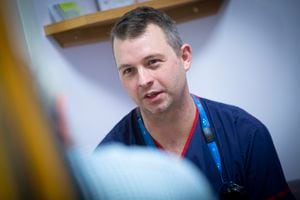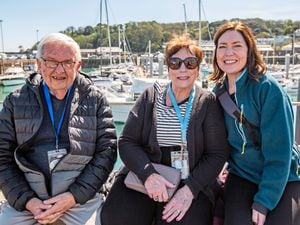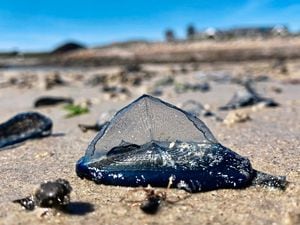‘Island should be able to attract more nursing staff’
GUERNSEY should be able to attract the extra nursing staff it requires, as long as they can find somewhere to live.

That is the assessment of the man leading the 50-strong critical care nursing team at the Princess Elizabeth Hospital.
John Eaton, who has worked at the PEH since 2009 and has been manager of critical care for the last five years, said Guernsey can boast working conditions which compare favourably to those typically experienced in the NHS.
‘There’s a known international shortage of nurses and healthcare staff, so it’s definitely challenging,’ he said.
‘Guernsey’s got its unique challenges to recruit to, being a small island with the issues around travel and things like that – and accommodation’s obviously been quite topical recently, with the housing market being what it is – but we’ve done well in terms of our terms and conditions being relatively attractive compared to the NHS, which is helpful.’
Mr Eaton said the island itself was a selling point, with a good work-life balance possible.
‘It’s a nice place to work,’ he said.
‘We don’t have the same stresses and pressures as the NHS and what we’ve seen in our recruitment is that this is a positive factor in attracting staff.’
Two new staff were interviewed and appointed last week and it is anticipated that when the new £8-10m. intensive care unit opens in a year’s time, as part of a hospital modernisation budgeted at £72.3-93.4m., there should be enough staff to accommodate 10 ICU patients in one purpose-built location.
This will represent a big improvement on the way care is provided when the current patient head count exceeds eight.
‘On occasions when we’re at capacity we surge into other locations,’ Mr Eaton said.
‘We’ve got a small satellite unit down the corridor. It wasn’t designed as an intensive care facility but we’ve got three beds there and we can look after patients down there with the same team of clinicians. On occasion, we have to look after patients in the recovery department next door as part of theatres, which again has a knock-on effect on their ability to do their normal work while we’re using their space.’
Even when not full, the current ICU is far from ideal.
‘We have curtains between the bed spaces,’ he said. ‘It’s quite hard to achieve good levels of privacy and dignity and confidentiality within the space because of how the unit was designed. It was appropriate when it was built 13 or 14 years ago but things have moved on.’
The new unit will have single-patient rooms with external windows.
‘There’s lots of research in ICU circles about the effects of being in intensive care as a patient over a prolonged period of time and the impact that has on causing delirium and mental health issues,’ Mr Eaton said.
‘Part of that is due to the environment and the noise pollution and lack of daylight and natural light. We factored all that into the design of the new unit to provide that better environment for our patients.’





